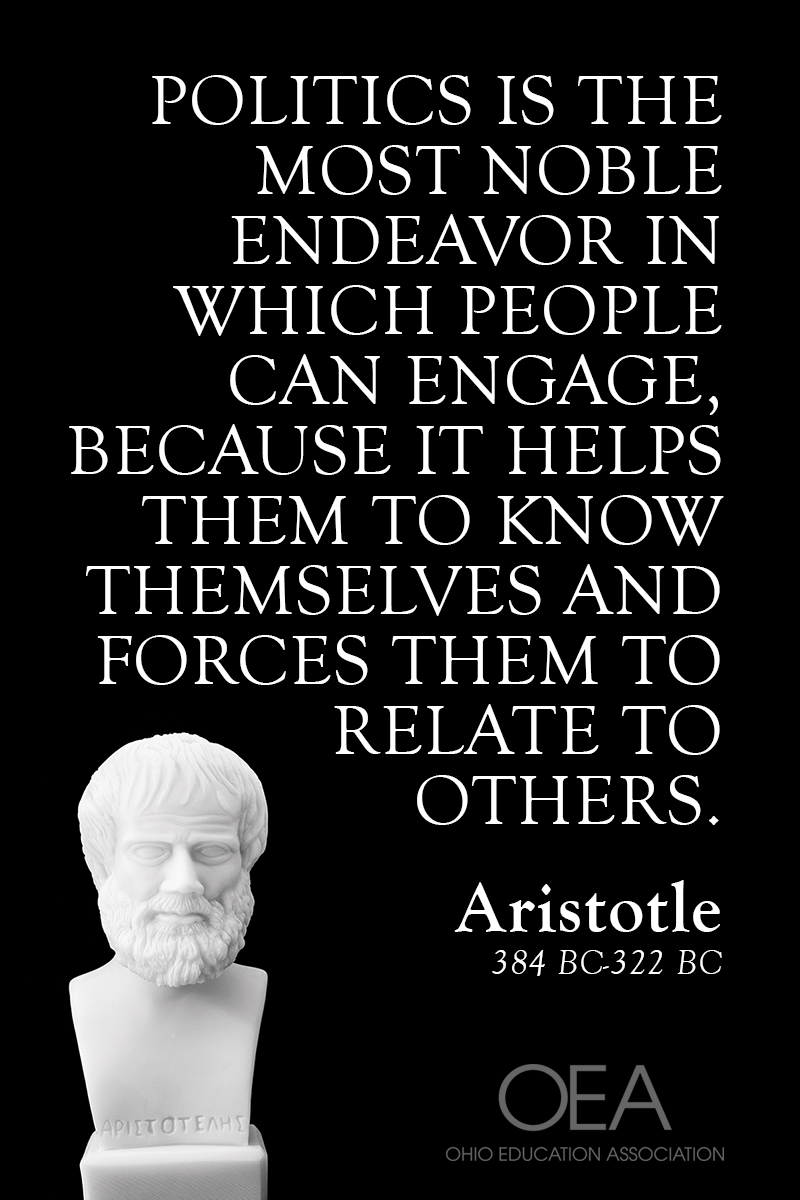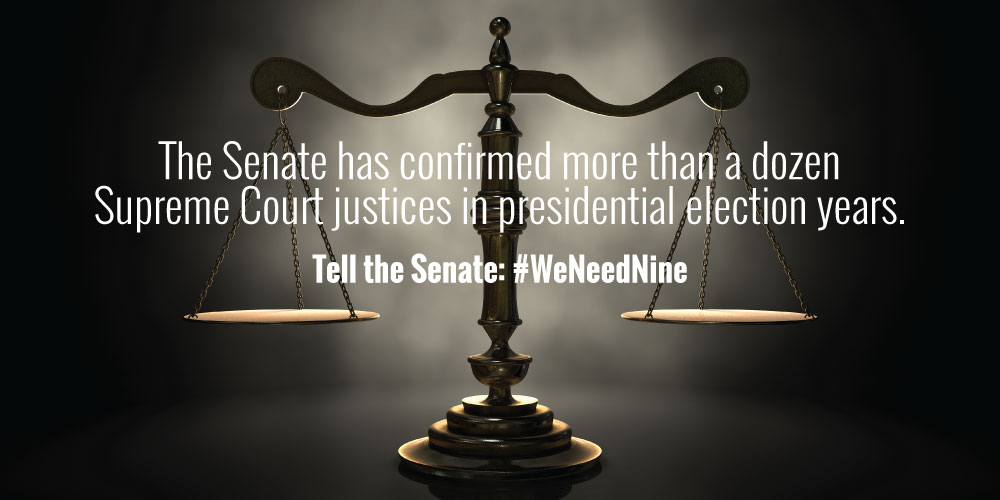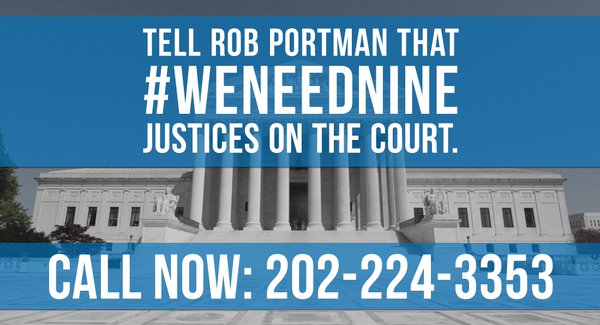By Maria Correale Mueller – AP U.S. Government Teacher, Mason City Schools
 As an educator, I cherish the opportunities my students have to observe our Constitution at work, going beyond reading about it in a textbook. Watching the fulfillment of the checks and balances our Founding Fathers established is a powerful teachable moment. Although checks are routine in our governmental system; few examples are as vividly memorialized than the confirmation process of a Supreme Court Justice. I hope my students will soon have the opportunity to witness and appreciate our Senators fulfilling this constitutional responsibility.
As an educator, I cherish the opportunities my students have to observe our Constitution at work, going beyond reading about it in a textbook. Watching the fulfillment of the checks and balances our Founding Fathers established is a powerful teachable moment. Although checks are routine in our governmental system; few examples are as vividly memorialized than the confirmation process of a Supreme Court Justice. I hope my students will soon have the opportunity to witness and appreciate our Senators fulfilling this constitutional responsibility.
Our Founding Fathers valued great thinkers like Aristotle who believed, “Politics is the most noble endeavor in which people can engage, because it helps them to know themselves and forces them to relate to others.” Today, Aristotle’s view of politics may seem more like science fiction. In this time of political polarization, I fear my students are left only with the disheartening rhetoric of politicians uninterested in serving the people and unwilling to relate to others, particularly those whose views and backgrounds differ from their own.
Senator Portman, in his March 18 Enquirer Op Ed, said confirmation should wait until “after the people have spoken” in the upcoming presidential election, despite his own acknowledgement that the people have already spoken by electing the current President and Senate. He states waiting for a “less partisan” atmosphere “will give the nominee more legitimacy” and “better preserve the institutional credibility of the Senate and the court.” In fact, holding up the confirmation promulgates the hyper-partisan atmosphere, demonstrating for my students that politics is divisive, rather than spirited problem solving. To not hold a hearing, nor allow a floor vote isn’t the result of the checks and balances our Founding Fathers bestowed, but superficial partisan struggles superimposed on an otherwise stable government foundation.
Senator Portman advances it isn’t the Senate’s duty to give advice and consent, but an option, like deciding to have dessert after dinner. He suggests this is the industry standard regarding lame-duck lifetime appointments. Again, the lesson for students is problematic; in what profession is it appropriate to neglect clearly-defined job expectations?
 As an educator, herein lies a fundamental concern. People make political decisions based on their perceptions of truth. The more educators must admonish our students to discount what they hear from politicians regarding the Constitution, the less trust they have in the government where those politicians serve. What for modern political participants is simply business-as-usual blurring of the truth for momentary advantage is surely and relentlessly undermining students’ trust in our leaders and our young people’s hope for meaningful political discourse. We need more, not less, genuinely optimistic messages from our leaders to discuss with my students so they can see our Constitution alive and thriving.
As an educator, herein lies a fundamental concern. People make political decisions based on their perceptions of truth. The more educators must admonish our students to discount what they hear from politicians regarding the Constitution, the less trust they have in the government where those politicians serve. What for modern political participants is simply business-as-usual blurring of the truth for momentary advantage is surely and relentlessly undermining students’ trust in our leaders and our young people’s hope for meaningful political discourse. We need more, not less, genuinely optimistic messages from our leaders to discuss with my students so they can see our Constitution alive and thriving.
I implore Senator Portman to fulfill his duty as a public servant, to be that example for my students. If he continues his position of obstruction, he risks discrediting all of us who yearn to prepare students to become the next generation’s honorable leaders. He risks declaring what we have taught our children is untrue, he risks demonstrating that the Framers were not brilliant Fathers of the beautiful, democratic work-in-progress we call the United States, but that their words, while wonderful prose, are only to be considered secondary to the self-serving nature of modern partisan politics.
Save




